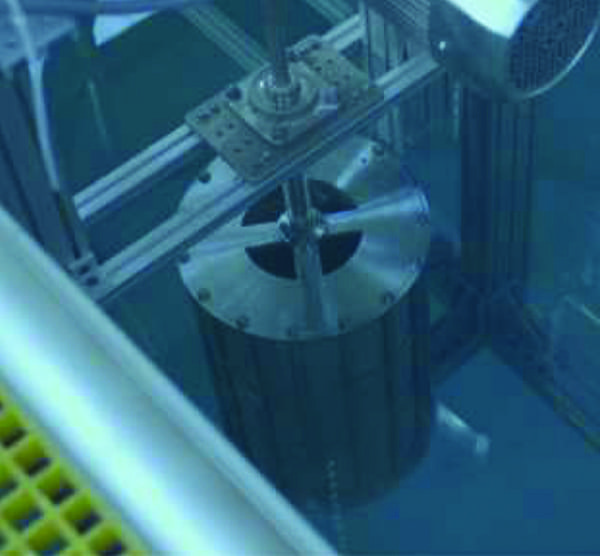Novel Nuclear Wastewater Treatment Ready for Market
Credit to Author: POWER| Date: Thu, 01 Aug 2019 00:00:00 +0000
An innovative nuclear wastewater treatment approach that could provide a cost-effective alternative to fixed-column ion-exchange plants is poised to enter the nuclear market.
Atkins, a company that multinational engineering and construction firm SNC-Lavalin acquired in 2017, announced in June that it would team with Swedish technology firm SpinChem AB in a five-year license and collaboration agreement to deploy Atkins’ Spinionic solutions in the nuclear sector. As SNC-Lavalin explained to POWER, Spinionic incorporates SpinChem’s rotating-bed reactor (RBR) technology to remove radionuclides (radioactive isotopes) from wastewater as part of a treatment known as ion exchange.
Ion exchange is a decades-old and much-used water and wastewater treatment process associated with chemical synthesis, medical research, food processing, mining, agriculture, as well as for radioactive separation.
For example, during nuclear decommissioning operations, which mainly occur underwater, ion exchange is typically used to absorb substantial amounts of fission product radionuclides such as cesium, as well as to treat effluent when the decommissioning pool is emptied. But the process is typically carried out in a tall column at an extensive processing plant. To remove the radionuclides, wastewater passes through a bed of resin beads or granules. In a once-through ion-exchange process, the contaminated solution is passed continuously through the ion-exchange bed until it becomes saturated with the contaminant; the ion exchange material is then replaced.
 |
5. SpinChem says its rotating bed reactor (RBR), pictured here, is a “modern alternative to stirred tank reactors and columns.” Courtesy: SpinChem |
But though the method is effective, a fixed-column processing plant can be costly and complex to build on congested sites. The Spinionic solution seeks to remedy that by deploying a spinning chamber—SpinChem’s RBR (Figure 5)—that holds the ion exchange media directly in the tank of water being treated. “The RBR device retains the solid phase as a packed bed inside a rotating cylinder. As the device spins, a continuously circulating flow develops,” SNC-Lavalin explained. “Reaction solution is rapidly suctioned to the bottom of the RBR vessel, percolated through the solid-phase media, and quickly returned to the storage tank or vessel.”
The technology, which essentially removes selective radioactive contaminants through centrifugal force, can be deployed directly in legacy tanks, it noted. However, it can also be deployed in skid-mounted external tanks with a dedicated RBR.
The Spinionic solution has taken “a long and complex process” to develop, noted Emil Byström, CEO of SpinChem AB. Several months after laboratory testing, in June 2018, Atkins and SpinChem completed full-scale trials of the treatment technology, with the backing of UK-based Fortis Remote Technology. Testing was conducted inside a Fortis Remote Technology 20-cubic-meter tank facility—“a volume similar to that of a large removal van,” SNC-Lavalin noted.
The companies told POWER that numerous trials are now underway at nuclear facilities around the world. Especially attractive to potential customers is the in-situ application. “Early indications have shown us that that in situ deployment could create cost savings of up to 30% when compared with [a] traditional ion exchange process plant,” Atkins spokesperson Alicia de Haldevang, said. “In addition, the deployment in situ will result in a significant improvement in safety by removing the need to externalize the contaminated water.” Sandy Taylor, president of SNC-Lavalin’s nuclear sector, meanwhile, said industry interest has been encouraging. The solution “has market-disrupting potential and will significantly improve the way radioactive water is made safe,” he predicted.
—Sonal Patel is a POWER senior associate editor.
The post Novel Nuclear Wastewater Treatment Ready for Market appeared first on POWER Magazine.